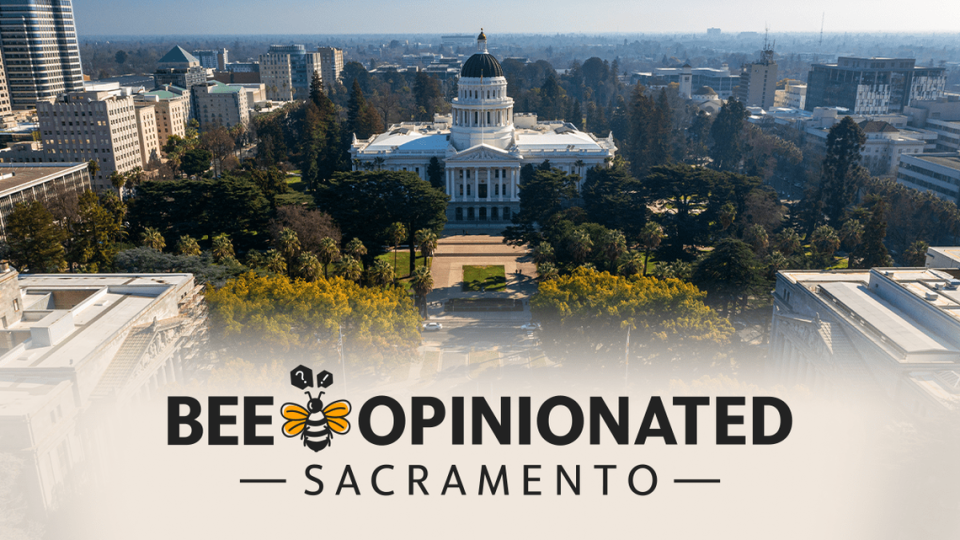Bee Opinionated: Whose streets? R Street + Psychedelics support + More homeless politicking
We send Bee Opinionated to newsletter subscribers first. Get it in your inbox before it publishes online: Sign up here.
Happy Sunday, newsletter fam. This is Yousef Baig with The Bee Editorial Board and I’m currently mourning.
Last week, vehicle traffic returned to a popular stretch of R Street where several restaurants, bars and the Ace of Spades music venue are located. As my colleague Robin Epley wrote, R Street has flourished since the block was closed off two years ago after the initial pandemic shutdown. Several restaurants expanded their outdoor seating area under the city’s emergency al fresco dining program, including three neighboring joints, Burgers & Brew, Bawk and Shady Lady, which even shared a single tent.
Opinion
It appeared to be a success. None of the restaurants shuttered, and once COVID restrictions were lifted, this slice of midtown has been as crowded as any in Sacramento. As a 30-something who lives nearby and loves cocktail lounges, live music and Mas Taco Bar’s happy hour, the R Street corridor is one of my favorite places on the grid.
There were two main reasons the safety bollards were removed and cars returned, Epley reported. A sensible new City Council ordinance that made al fresco dining permanent took effect, requiring temporary installations to be removed by the end of July. Any restaurant that wanted to open a permanent “parklet” had to apply for a permit under the new rules.
The other reason was the city’s desire for lost parking revenue, which was roughly $25,000 per year on the closed-off block. Despite ample options in nearby garages, lots and streets, city officials were supposedly covering the cost for the street closure. To keep it closed apparently would have required a sponsor to step in, but no one did.
So, like the Handle District on Capitol Avenue, another pedestrian-friendly corridor regressed to its former self, much to the chagrin of everyone who enjoyed the pandemic-era adaptation. City leaders dedicated $2 million in COVID relief funds to assist restaurants with permanent outdoor dining fixtures, but they misjudged what Sacramentans loved more: closed streets.
Another similar experiment was the so-called slow streets program, which closed several residential streets to through traffic in Oak Park, Land Park, Tahoe Park, Meadowview and midtown. The results were mixed, but The Editorial Board encouraged city officials to revisit the program and explore permanent options as San Francisco did on dozens of streets.
There’s obvious climate and public health benefits to reducing vehicle use, but there’s also some precedent Sacramento leaders have to consider. In the mid-1990s, city officials set goals to boost residential livability and increase safety by reducing car lanes, adding bike lanes and expanding street curbs.
Given Sacramento’s abysmal traffic safety record, there are more reasons to preserve street closures than to reopen them. City leaders should be thinking more about quality of life than parking revenue.

Long, strange (lifesaving) trips
A bill by San Francisco state Sen. Scott Wiener that would decriminalize the possession and use of psychedelic substances faces a critical hurdle this week. After passing the senate with bipartisan support last year, it’s sat idle in the so-called suspense file of the Assembly, reduced to a legislative needle in a haystack of proposals hoping to exit an Appropriations Committee where many often die.
The Editorial Board recently met with Wiener and the bill’s sponsors, including Jesse Gould, a former Army Ranger who overcame PTSD and alcoholism by experimenting with ayuhuasca in South America. Moved by his story and the merits of a bill that would take cautious first steps, I authored an editorial on behalf of the board, lending our support.
“A deluge of credible recent research illustrates the benefits of psychedelics for traumatized combat veterans and people with addiction disorders and debilitating mental illnesses. The healing power of hallucinogens, including psilocybin mushrooms, MDMA, ayahuasca and ibogaine, has evolved from anecdotal folklore to study by renowned institutions and schools around the country...”
Opinion of the Week
“Sacramento symbolizes the total failure of California communities to account for and manage the cause of unsheltered homelessness: the lack of shelter and housing. Capital leaders, like those in other major California cities, have never been able to muster the collective political will to deal with our debilitating shortage of both. Instead, they inevitably end up supporting gimmicks rather than the hard and expensive work required to move unhoused people off our streets, alleys, parks and vacant lots and into shelter and housing.” — Marcos Breton, Josh Gohlke and I in an editorial on the latest political theatrics by city and Sacramento County leaders, which could further delay action on homelessness.
Got thoughts? What would you like to see in this newsletter every week? Got a story tip or an opinion to tell the world? Let us know what you think about this email and our work in general by emailing us at any time via opinion@sacbee.com.
Until next time,
Yousef Baig


 Yahoo Movies
Yahoo Movies 
